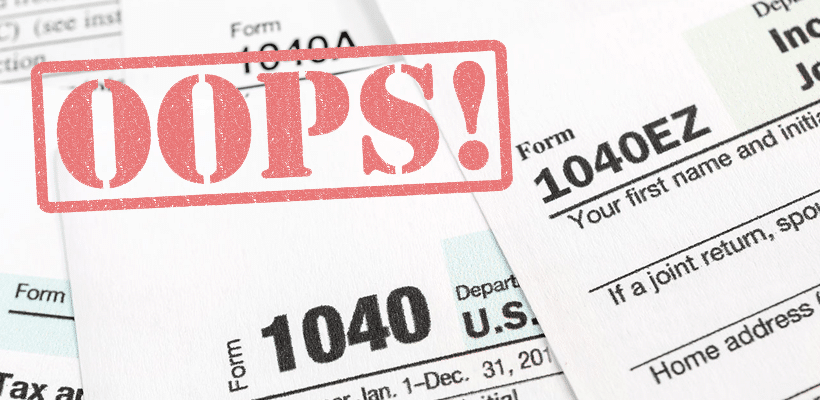Startups, watch out for these IRS penalties. Taxes are serious business, but they don’t have to be scary.
When you understand the possible penalties you could incur, you can sleep a little easier knowing you won’t be thrown in jail or have your small business taken away. Knowledge is power.
Here’s a list of seven tax tips for startups that demystifies the most common IRS penalties for non-criminal offenses. Just don’t go breaking any laws, okay?
Penalties for missing deadlines

1. Filing your taxes late
You can always file for a tax extension. But if you file your taxes more than 60 days past the due date or extension date, the minimum penalty is $205. If you owe less than $205, then you will have to pay 100% of your owed amount.
For every month after the 60-day mark, your fine accumulates at a rate of 5% of your unpaid tax amount. Even if you know you can’t pay your bill in full, you should still file your taxes and pay what you can. The IRS interest adds up fast.
2. Paying your taxes late
For every month until you pay your original tax bill off, you will have to pay an additional 0.5% of the unpaid tax amount, up to a maximum 25% of your total tax bill. This penalty still applies even if you sent in a check on time, but the check bounced—so be sure you have the funds in the bank before sending.
3. Filing and paying your taxes late
Thankfully, these two penalties don’t stack. If you are late to both, you will only pay the 5% per month interest fine.
4. Paying your taxes late, after an “Issuance of Notice”
If the IRS finds that you owe more in taxes than you originally calculated, they’ll send an Issuance of Notice to ask for the additional payment. After that, you have 21 calendar days to pay the additional amount, otherwise, you’ll have to pay 0.5% interest on the owed amount per month.
5. Submitting a form late
If you’re late returning a W2 (for employees) or a 1099 (for contractors), the fine is a maximum of $50.
If you’re late returning a 1065 form (for partnerships) or a 1120S form (for S corps), the fine is a maximum of $195 a month per partner, so it can add up quick if you don’t act fast.
Mistake Penalties

6. Calculating your owed taxes too low
This one deserves special attention. If you substantially underestimate how much tax you owe, or the IRS finds you were negligent in an aspect of your taxes (ie. it wasn’t just a small mistake), the penalty is hefty: a 20-40% increase in taxes owed.
7. Calculating employee taxes incorrectly
This is a big one. There’s a 100% penalty on all unpaid federal employment taxes. Which means you’ll have to pay twice for the employment taxes you don’t pay the first time. The two common scenarios for this are not reporting employee wages through your payroll provider, and not reporting employee tip income.
The TFR Penalty
If you have employees, you must withhold and pay trust fund taxes (payroll taxes that are held in “trust”). These taxes include income tax, social security, Medicare, and federal unemployment tax.
As an employer, you’re required to withhold social security, Medicare, and federal unemployment tax from each employee’s paycheck and send it to the IRS on a monthly basis. The penalty is equal to the unpaid balance of the trust fund tax.
When does a “mistake” become a crime?

The IRS is diligent and curious. Like Sherlock Holmes. If they find that your mistake goes beyond negligence, into the territory of intentionally lying and filing a false return, then you have committed a criminal offense and could have your property seized, or worse yet—serve jail time.
Penalties are no fun, and the IRS is no joke. We strongly recommend working with a tax pro to make sure that you’re filing and paying the right amount at the right time. The peace of mind is worth every penalty-free penny.
And if you’d rather have a pro take care of your bookkeeping, Bench can help with that.
Editor’s Note: The article is part of the startup tools blog series Run Your Business brought to you by the marketing team at UniTel Voice, the virtual phone system priced and designed for startups and small business owners.






